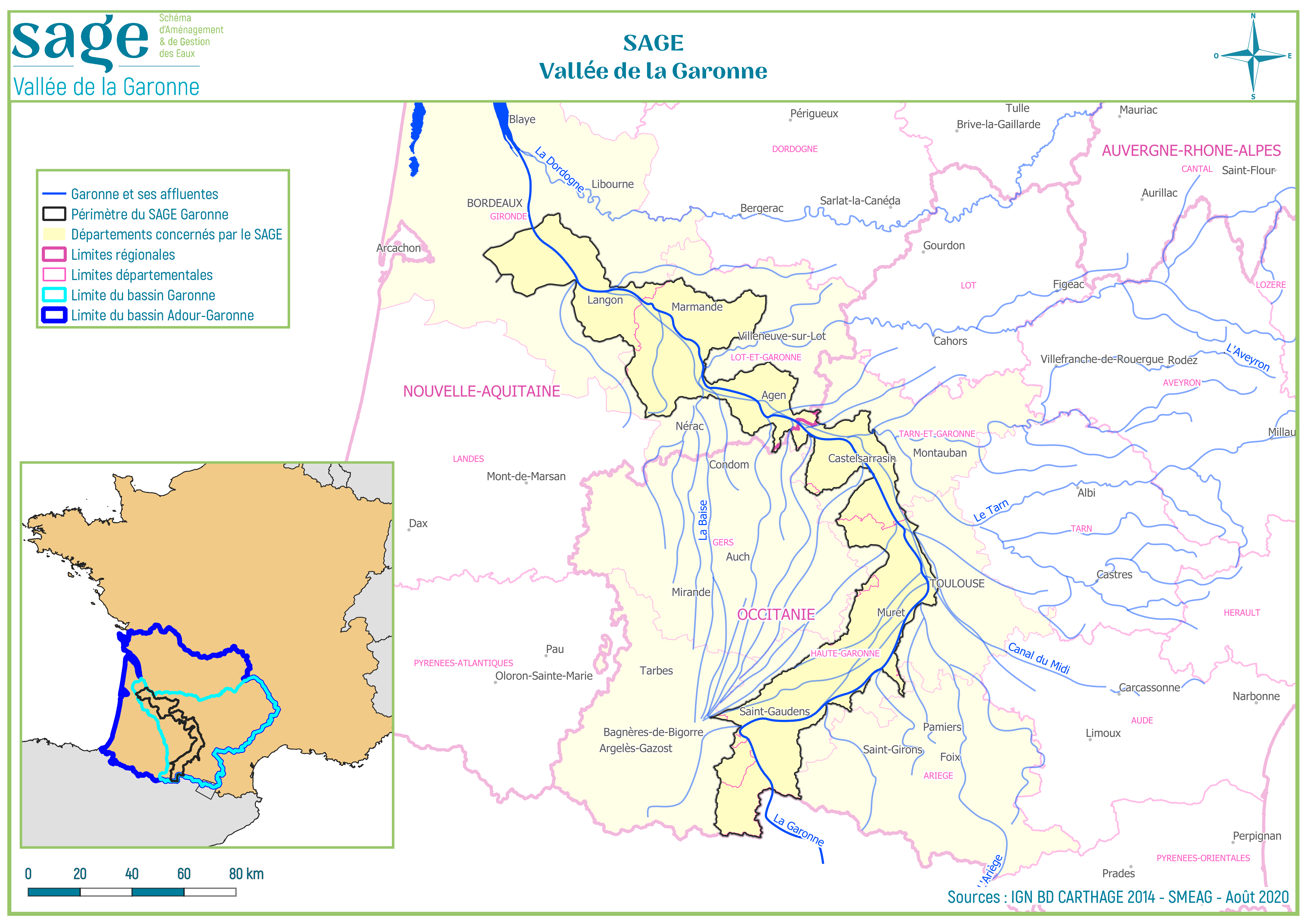
The Syndicat Mixte d’Etudes et d’Aménagement de la Garonne (SMEAG - river basin governance body for the study and development of the Garonne river) is a public establishment. It was created thirty years ago around the economic development of the Garonne valley while integrating all the issues relating to the management of water resources: quantitative aspects (droughts and floods), qualitative aspects, environmental aspects...
Partners of the LIFE Eau&Climat project – SMEAG
- balanced management of water resources and aquatic environments
- flood prevention
- the management and preservation of natural environments and wetlands
The performance of SMEAG's missions is based on two professions:
- Thematic expertise: knowledge on the main themes related to water management (low water management, floods, wetlands, migratory fish, water quality, landscapes, etc.);
- Territorial engineering: advice and assistance to local authorities in order to plan and define management plans to ensure the integrated management of the water resources and environments of the Garonne river.
Websites: https://www.smeag.fr/ www.sage-garonne.fr
TERRITORY

- Surface area: 8200 km²
- River basin district: Adour-Garonne
- Number of SAGE supported: 1
- SAGE involved in the LIFE Eau&Climat project: SAGE Vallée de la Garonne
- Other management tools concerned by the project:
- PTGE (Projet de Territoire pour la Gestion de l'Eau – territory project to help for the water management)
- The territory’s issues concerning the climate change:
- governance
- quantity
- environmental resilience and uses
CONTRIBUTION OF THE LIFE EAU&CLIMAT PROJET
SMEAG is particularly involved in the following actions:
- Development and validation of decision support tools -> expectations and recommendations for tools.
- Mobilisation of local stakeholders -> Identify and characterise the competent project owners to carry out adaptation actions and in particular no-regrets actions; provide project engineering to these project owners, in particular to promote measures to improve the resilience of aquatic and wetland environments; develop partnerships with professional agricultural organisations to promote more resilient agriculture in the context of water scarcity; develop a network of climate change advisors.
- Facilitating access to hydro-climatic data -> specification of needs in terms of data and indicators; develop the SAGE scorecard with shared indicators linked to climate change and make them accessible to the public in the Garonne Observatory; develop the water quality measurement network.
- Strengthen exchanges between researchers and managers -> mobilise research stakeholders with a networking workshop; participation in the PYGAR project, capitalisation and dissemination of work; lead a socio-economic study on the impact of the climate change adaptation process.
